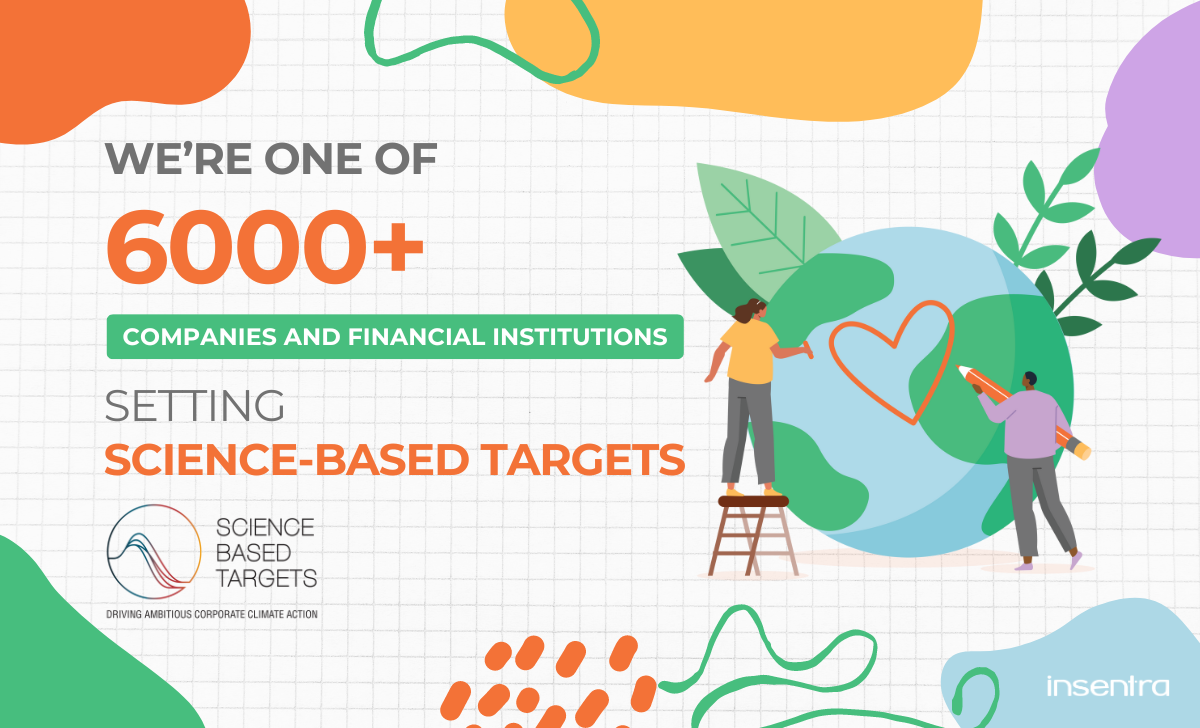Sydney, 2 September 2024 — Insentra is proud to announce that we have formalised our science-based targets for our greenhouse gas emission reductions. Our commitment to the Science Based Targets initiative (SBTi) solidifies our dedication to mitigating climate change and contributing to a sustainable future.
The Science Based Targets initiative is a globally recognised framework that helps companies set ambitious emissions reduction targets in line with the latest climate science and the goals of the Paris Agreement.
At Insentra, we have always aimed to make the best decisions for all our stakeholders, including our crew and the environment. By joining the SBTi, Insentra commits to reducing its greenhouse gas (GHG) emissions in line with the levels required to keep global temperature rise below 1.5 degrees Celsius above pre-industrial levels. This decision is in line with our values of Honesty, Integrity and Trust.
Our near-term and net-zero targets have been validated from the SBTi:
This target was approved using a streamlined target validation route exclusive to small and medium-sized enterprises (SMEs). You can find more details on the route here.
Insentra commits to reduce scope 1 and scope 2 GHG emissions 42% by 2030 from a 2022 base year, and to measure and reduce its scope 3 emissions. Insentra commits to reach net-zero by 2050.
As part of this, Insentra commits to reduce scope 1+2+3 emissions 90% by 2050 from a 2022 base year.
To reach our targets, Insentra will work on direct emissions reductions, which involves working closely with our suppliers to reduce our Scope 3 GHG emissions. We will also maintain sustainable preferred practices to ensure all our business decisions consider the impact on our stakeholders, including the environment and our crew.
Embodying our company values of Honesty and Accountability, Insentra regularly reports on our environment, social and governance (ESG) journey and will continue to update our stakeholders on our achievements and challenges.
Learn more about our journey to net-zero on our ESG commitment page. Our targets are available for viewing on the SBTi Dashboard: https://sciencebasedtargets.org/target-dashboard
About Insentra
Insentra is a collaborative IT Services partner delivering specialised Advisory, Professional and Managed Services. Our Partner-centric model provides you with direct access to industry expertise.
We believe great business relationships start with trust. We are 100% channel focused, meaning we only transact and deliver services exclusively with our Partners.
Our dedication to you is based on our vision to be the number one channel services company on the planet. We do this by being the best version of ourselves, creating an outstanding environment for our team, loving the work we do and amazing each other and our partners in every way.
We are and always will remain a PartnerObsessed™ company.
About the Science Based Targets initiative
The Science Based Targets initiative (SBTi) is a global organisation that helps companies set greenhouse gas (GHG) emissions reduction targets in line with climate science. Its mission is to drive ambitious climate action in the private sector by enabling businesses to set science-based emissions reduction targets that align with the goals of the Paris Agreement, particularly the target to limit global warming to well below 2°C above pre-industrial levels, and to pursue efforts to limit warming to 1.5°C. The SBTi provides companies with a clear pathway to future-proof growth by specifying how much and how quickly they need to reduce their GHG emissions.
To achieve this, the SBTi offers a robust framework for setting and validating targets, which are considered science-based if they meet the specific criteria set by the initiative. These targets are independently assessed and validated by the SBTi, ensuring that they are credible and aligned with the latest climate science. By adopting science-based targets, companies can enhance their resilience, drive innovation, and demonstrate leadership in the transition to a low-carbon economy.










